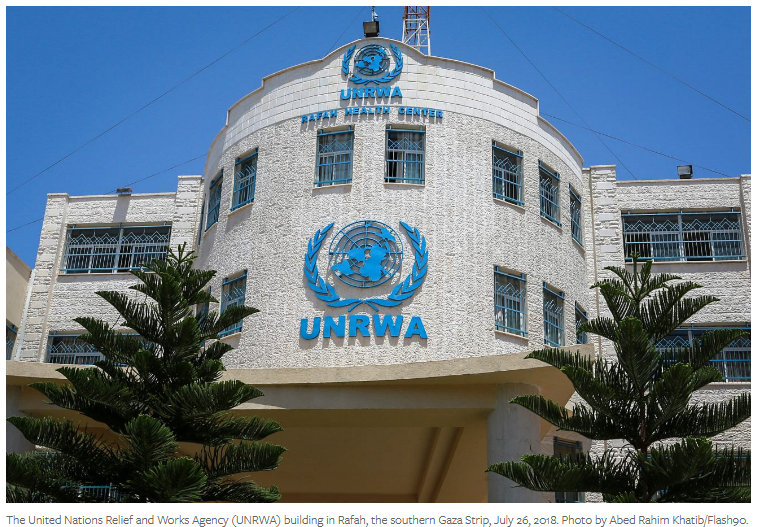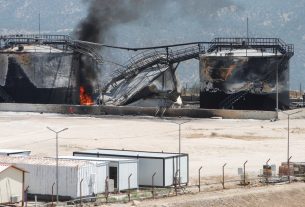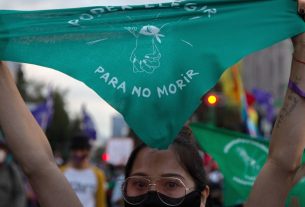The United Nations Relief and Works Agency for Palestine Refugees in the Near East (UNRWA) was established in 1949 to provide humanitarian assistance to Palestinian refugees displaced by the Arab-Israeli conflict. UNRWA operates in five areas: Gaza, the West Bank, Jordan, Lebanon, and Syria. Its core functions include:
- Education: UNRWA runs schools for over half a million children, providing education from primary through secondary levels.
- Healthcare: The agency operates clinics and healthcare facilities, offering essential medical services to refugees.
- Social Services: UNRWA provides social assistance programs, including food aid and financial support for vulnerable families.
- Emergency Response: The agency plays a critical role during crises, such as conflicts or natural disasters, offering immediate relief and support.
Why Has Israel Banned UNRWA?
Israel’s stance against UNRWA has intensified, particularly in the wake of heightened tensions following events such as the Hamas attacks on October 7, 2023. Several factors contribute to Israel’s call for a ban on the agency:
- Allegations of Bias: Israel accuses UNRWA of bias against it, claiming that the agency promotes anti-Israel narratives through its educational materials and operations. Israeli officials argue that UNRWA’s portrayal of the conflict fosters animosity and delegitimizes Israel.
- Security Concerns: Israel has expressed concerns regarding the potential use of UNRWA facilities by militant groups, particularly Hamas. The agency’s operations in Gaza have been scrutinized, with claims that Hamas has exploited these facilities for military purposes, posing a direct security threat to Israel.
- Complicity in Terrorism: Following the October 7 attacks, allegations emerged that some UNRWA staff members were involved in or complicit with Hamas. This has amplified calls within Israel for the agency to be banned, as officials argue that such complicity undermines UNRWA’s credibility and raises serious security concerns.
- Perpetuation of Refugee Status: Critics in Israel assert that UNRWA’s mission perpetuates the refugee status of Palestinians rather than promoting their integration or resettlement. This viewpoint contends that maintaining a separate agency for Palestinian refugees reinforces the conflict rather than working toward a resolution.
Implications of the Ban
The implications of Israel’s potential ban on UNRWA are significant:
- Humanitarian Crisis: A ban could exacerbate the humanitarian situation for millions of Palestinian refugees who rely on UNRWA for essential services. The agency plays a vital role in providing education, healthcare, and food assistance, and its absence could lead to increased poverty and instability.
- International Reactions: The international community may react strongly to any ban on UNRWA. Many countries view the agency as critical for maintaining stability in the region and addressing humanitarian needs. Efforts to ban UNRWA could lead to diplomatic tensions and challenges in international relations.
- Political Dynamics: The ban could further polarize the Israeli-Palestinian conflict, making dialogue and negotiation more difficult. The humanitarian needs of Palestinian refugees are often sidelined in political discourse, and a ban could worsen this dynamic.
Conclusion
UNRWA is a crucial institution providing essential services to Palestinian refugees, but its operations are fraught with controversy, particularly regarding allegations of bias, complicity of some of it’s members and security risks. Israel’s calls to ban the agency, fueled by concerns over alleged complicity of some staff members with terrorist activities, reflect broader tensions in the region. As the situation evolves, the future of UNRWA and its ability to assist Palestinian refugees remain critical issues in the ongoing Israeli-Palestinian conflict.
It is advisable for all parties to once again exercise caution and restraint in dealing with these important and far reaching issues which ultimately involved the livelihood and security of several people, while it is understandable that there might be an element of truth in these allegations, it is however wrong to mete out a collective action or punishment against the organisation as a whole mainly because of the many inoocent people who are reliant on it’s services.
The other option is for Israel to present it’s findings to international mediation groups and try to treat this as a clandestine operation so as to root out the bad players and avoid a collective action been meted out that would have too many consequences and ultimately portray Israel as the offensive party.


